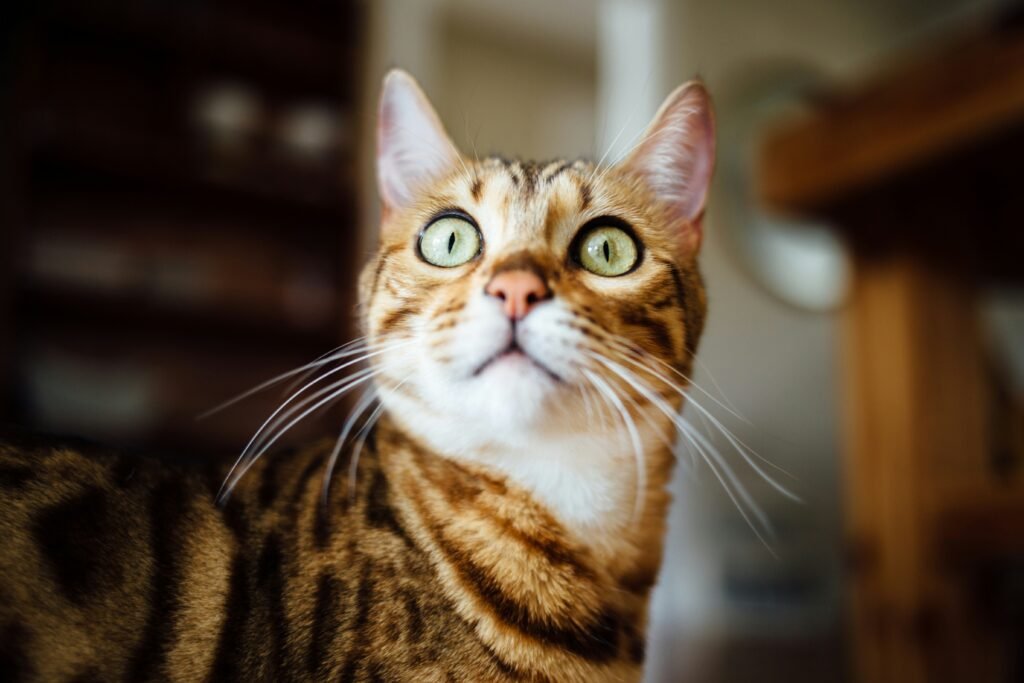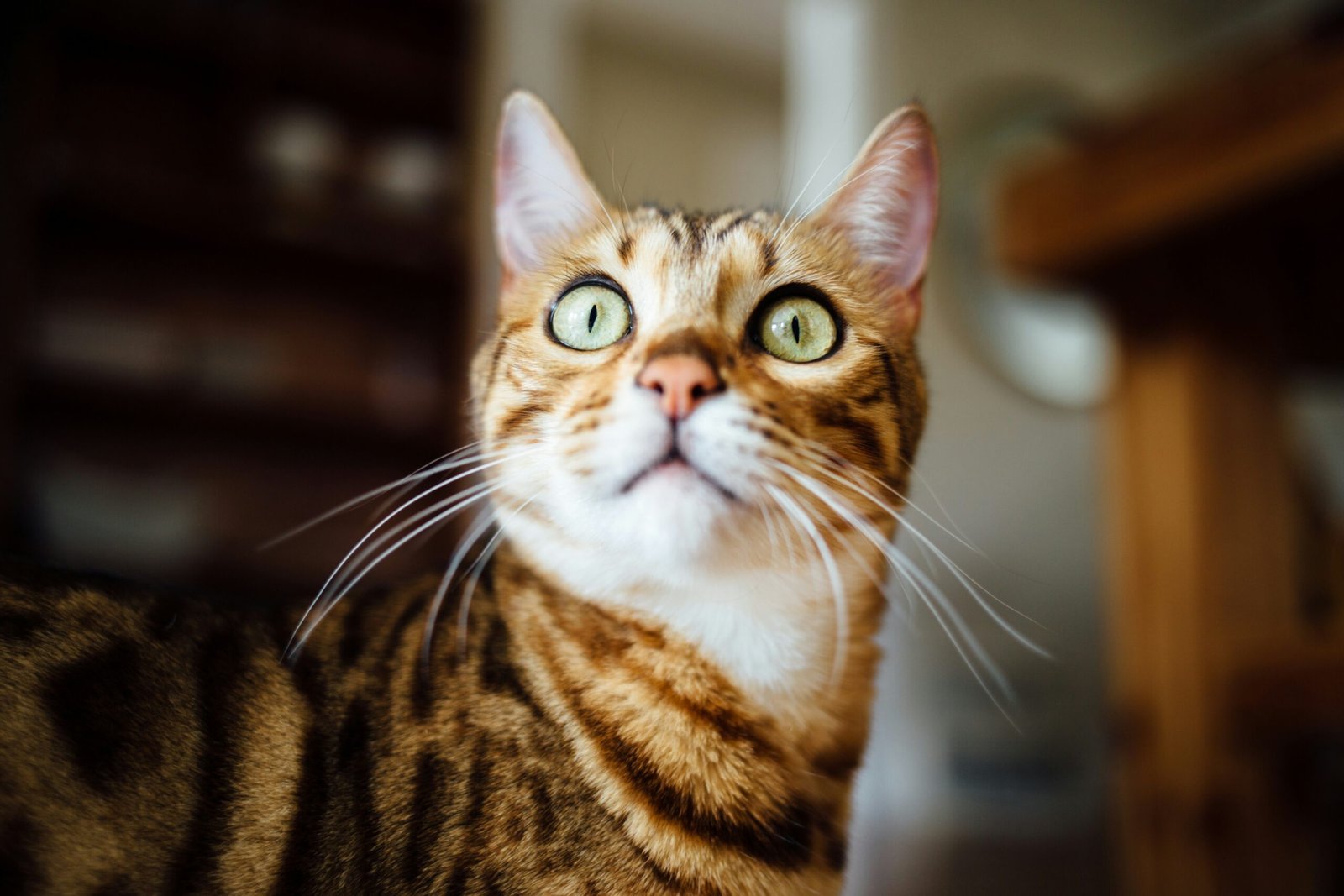Discovering the World of Hypoallergenic Cats
For many cat lovers, the dream of owning a feline companion is often overshadowed by one significant hurdle: allergies. The sneezing, watery eyes, and constant itching can make it seem impossible to enjoy the company of a cat. However, there’s good news for allergy sufferers—hypoallergenic cats exist! These special breeds are known for producing fewer allergens, making them a potential solution for those who want to experience the joy of cat ownership without the discomfort.
In this blog post, we’ll explore everything you need to know about hypoallergenic cats, from their unique characteristics to how they can fit into your life. Whether you’re an experienced pet owner or a first-time adopter, this guide will help you understand why hypoallergenic cats might be the perfect match for you.
What Makes a Cat Hypoallergenic?
While no cat is entirely allergen-free, hypoallergenic cats are breeds that produce fewer allergens compared to others. This characteristic makes them a popular choice for people with mild to moderate cat allergies. Below, we’ve outlined some key factors that contribute to a cat being considered hypoallergenic:
Reduced Fel d1 Protein Production
The primary allergen in cats is a protein called Fel d1, which is found in their saliva, skin, and urine. Hypoallergenic cats tend to produce less of this protein.Hairless or Low-Shedding Breeds
Cats that have little to no fur or shed minimally are often classified as hypoallergenic because they release fewer allergens into the environment.Regular Grooming Needs
Some hypoallergenic cats require frequent grooming, which helps minimize the spread of allergens around the home.Unique Coat Texture
Certain breeds have coats that trap allergens closer to their bodies, reducing the amount of allergens released into the air.Small Size
Smaller cats may produce fewer allergens overall due to their reduced body size and lower levels of grooming.
Understanding these factors can help you determine if a hypoallergenic cat is the right choice for your household. While they may not eliminate allergies entirely, these breeds can significantly reduce symptoms for many people.
Popular Hypoallergenic Cat Breeds
If you’re considering adopting a hypoallergenic cat, you’ll be pleased to know that there are several breeds renowned for their compatibility with allergy sufferers. Each breed has its own unique traits and care requirements, so it’s important to choose one that aligns with your lifestyle. Here are some of the most popular hypoallergenic cat breeds:
Sphynx
Known for their lack of fur, Sphynx cats are often the first breed people think of when it comes to hypoallergenic options. Despite their hairless appearance, they still require regular bathing to remove oils from their skin.Devon Rex
With their curly, short coat, Devon Rex cats shed very little, making them an excellent choice for allergy sufferers. Their playful and affectionate nature also makes them great companions.Cornish Rex
Similar to the Devon Rex, the Cornish Rex has a soft, wavy coat that sheds minimally. They are energetic and love to play, making them ideal for active households.Russian Blue
This breed is prized for its striking blue-gray coat and low-allergen properties. Russian Blues are known for being calm, loyal, and easy to care for.Balinese
Often referred to as the “long-haired Siamese,” the Balinese produces fewer allergens than other long-haired breeds. Their social and intelligent personalities make them a favorite among cat enthusiasts.
These breeds offer a variety of options for those seeking a hypoallergenic cat. While each has its own unique needs, all of them share the common trait of being more tolerable for allergy sufferers. Choosing the right breed depends on your preferences and lifestyle.
Check this guide 👉Discovering the Charm of Grumpy Cat Breeds: Best 7 Tips!
Check this guide 👉Discovering the Charm of Indian Cat Breeds: Best 7 Tips!
Check this guide 👉Discover the Allure of Exotic Cat Breeds: Best 7 Expert Tips

Hypoallergenic Cat Traits | Benefits for Allergy Sufferers |
|---|---|
Reduced Fel d1 protein production | Fewer allergens in the environment |
Minimal shedding | Less dander and hair around the house |
Hairless or short coats | Easier to clean and maintain |
Regular grooming requirements | Helps control allergen buildup |
Playful yet calm temperaments | Ideal for families and individuals |
Tips for Living with a Hypoallergenic Cat
Even though hypoallergenic cats produce fewer allergens, it’s still important to take steps to minimize exposure and maintain a comfortable living environment. Here are some practical tips to help you coexist happily with your new furry friend:
Frequent Cleaning
Vacuum carpets, rugs, and furniture regularly to remove any stray allergens. Consider using a vacuum with a HEPA filter for optimal results.Designated Cat-Free Zones
Create areas in your home where your cat is not allowed, such as bedrooms or offices, to give yourself a break from potential allergens.Air Purifiers
Invest in high-quality air purifiers to help remove airborne allergens and improve indoor air quality.Bathing Your Cat
If your cat tolerates it, bathe them every few weeks to reduce allergens on their skin and coat. Use a gentle, cat-safe shampoo.Wash Bedding and Toys
Regularly wash your cat’s bedding, toys, and any fabric items they frequently come into contact with to prevent allergen buildup.
By following these tips, you can create a harmonious living space that accommodates both you and your hypoallergenic cat. A little extra effort goes a long way in ensuring a happy and healthy home environment.
Common Misconceptions About Hypoallergenic Cats
Despite their growing popularity, there are several misconceptions about hypoallergenic cats that can lead to confusion. To help clarify things, let’s debunk some of the most common myths:
Myth: Hypoallergenic Cats Are Completely Allergen-Free
While they produce fewer allergens, no cat is entirely free of allergens. It’s essential to manage expectations when adopting one.Myth: Only Hairless Cats Are Hypoallergenic
Hairless breeds like the Sphynx are hypoallergenic, but so are some coated breeds like the Russian Blue and Balinese.Myth: Hypoallergenic Cats Require No Grooming
Even low-shedding or hairless cats need regular grooming to stay healthy and reduce allergens.Myth: Allergy Sufferers Can’t Have Cats
Many people with allergies can live comfortably with hypoallergenic cats by taking proper precautions.Myth: Hypoallergenic Cats Are High-Maintenance
While they may require specific care routines, these cats are no more demanding than other breeds when it comes to overall maintenance.
Understanding these misconceptions can help you make an informed decision about bringing a hypoallergenic cat into your home. Knowledge is key to ensuring a successful and enjoyable relationship with your new pet.
Why Choose a Hypoallergenic Cat?
Hypoallergenic cats are an excellent choice for individuals who want to enjoy the companionship of a feline without the constant worry of allergic reactions. These breeds offer several benefits that make them stand out from other cats. Below, we’ve outlined some of the key advantages of owning a hypoallergenic cat:
Reduced Allergy Symptoms
Hypoallergenic cats produce fewer allergens, which can significantly reduce symptoms like sneezing, itchy eyes, and congestion.Improved Quality of Life
For allergy sufferers, having a pet that doesn’t trigger severe reactions can improve overall well-being and happiness.Wide Variety of Breeds
From hairless Sphynx cats to elegant Russian Blues, there’s a hypoallergenic breed to suit every personality and lifestyle.Family-Friendly Options
Many hypoallergenic cats are known for their friendly and adaptable temperaments, making them great companions for families.Low Maintenance (for Some Breeds)
Certain hypoallergenic cats, like the Balinese, require minimal grooming compared to other long-haired breeds.
Choosing a hypoallergenic cat can be a life-changing decision for allergy sufferers, offering both practical and emotional benefits. With proper care, these cats can become cherished members of your household.
What to Expect When Living with a Hypoallergenic Cat
While hypoallergenic cats are a great option for allergy sufferers, it’s important to recognize that they come with their own set of challenges. Understanding these potential obstacles can help you prepare for a successful relationship with your new pet. Here are some common challenges you might encounter:
Allergies May Still Occur
Even hypoallergenic cats can trigger mild allergic reactions in sensitive individuals, so it’s crucial to manage expectations.Special Grooming Needs
Hairless breeds like the Sphynx require frequent baths to remove excess oils, which can be time-consuming.Higher Upfront Costs
Some hypoallergenic breeds, such as the Devon Rex or Russian Blue, may have higher adoption or purchase fees due to their rarity.Environmental Adjustments
You may need to invest in air purifiers, allergen-proof bedding, and regular cleaning routines to maintain a comfortable home.Individual Variability
Not all hypoallergenic cats will work for every allergy sufferer, as reactions can vary from person to person.
While these challenges exist, they are manageable with the right preparation and mindset. By addressing these factors, you can create a harmonious environment for both you and your cat.
Surprising Facts You Didn’t Know About Hypoallergenic Cats
Hypoallergenic cats are fascinating creatures with unique characteristics that set them apart from other breeds. Learning more about these fun facts can deepen your appreciation for these special felines. Here are some intriguing tidbits about hypoallergenic cats:
The Sphynx Isn’t Actually Hairless
Despite their hairless appearance, Sphynx cats have a fine layer of downy fuzz that gives their skin a soft, suede-like texture.Devon Rex Cats Are Known as “Clowns”
The playful and mischievous nature of Devon Rex cats has earned them the nickname “clowns of the cat world.”Russian Blues Are Naturally Reserved
Russian Blue cats are known for their shy demeanor, but they form strong bonds with their owners once they feel comfortable.Balinese Cats Are Vocal
Often referred to as “long-haired Siamese,” Balinese cats are highly communicative and love to “talk” to their humans.Cornish Rex Cats Love Warmth
Due to their thin coats, Cornish Rex cats often seek out warm spots, such as sunny windowsills or laps, to stay cozy.
These fun facts highlight the unique personalities and traits of hypoallergenic cats, making them even more endearing. Whether you’re drawn to their quirky behaviors or distinctive appearances, there’s no denying the charm these breeds bring to any home.
Frequently Asked Questions About Hypoallergenic Cats
Are hypoallergenic cats suitable for severe allergy sufferers?
While hypoallergenic cats produce fewer allergens, they may not be suitable for individuals with severe allergies. It’s best to consult an allergist before adopting.
Do hypoallergenic cats require special diets?
No, hypoallergenic cats do not require special diets unless they have specific health conditions. A balanced diet is sufficient for their needs.
How often should I clean my home with a hypoallergenic cat?
Aim to clean at least once a week, focusing on vacuuming and washing fabrics to minimize allergens.
Can I adopt a hypoallergenic cat if I have other pets?
Yes, hypoallergenic cats can coexist with other pets, provided proper introductions and supervision are in place.
Are hypoallergenic cats more expensive than other breeds?
Some hypoallergenic breeds, like the Sphynx, can be more expensive due to their rarity and unique characteristics. However, adoption fees vary widely.
Embracing the Joy of Hypoallergenic Cat Ownership
Hypoallergenic cats offer a wonderful opportunity for allergy sufferers to experience the joys of cat ownership without compromising their comfort. From their unique traits to the practical steps you can take to minimize allergens, these breeds are a testament to the fact that everyone deserves a loving companion. By understanding their needs and debunking common myths, you can make an informed decision about whether a hypoallergenic cat is right for you. Remember, the bond between a human and their pet is priceless, and with the right preparation, you can create a harmonious home for both you and your new feline friend.
Saint Bernard Yorkshire Terrier Mix: Best 7 Expert Tips! Discover expert advice on training, care, and living with this unique hybrid for a happy and healthy companion.
Saint Bernard Maltese Mix: Best 7 Expert Tips! Discover expert advice on training, care, and living with this unique hybrid for a happy and healthy companion.
Saint Bernard Bull Terrier Mix: Best 7 Expert Tips! Discover expert advice on training, care, and living with this loyal and striking hybrid for a happy, healthy companion.
Saint Bernard Bichon Mix: Best 7 Expert Tips! Discover expert advice on training, care, and living with this gentle yet playful hybrid for a happy and healthy companion.





